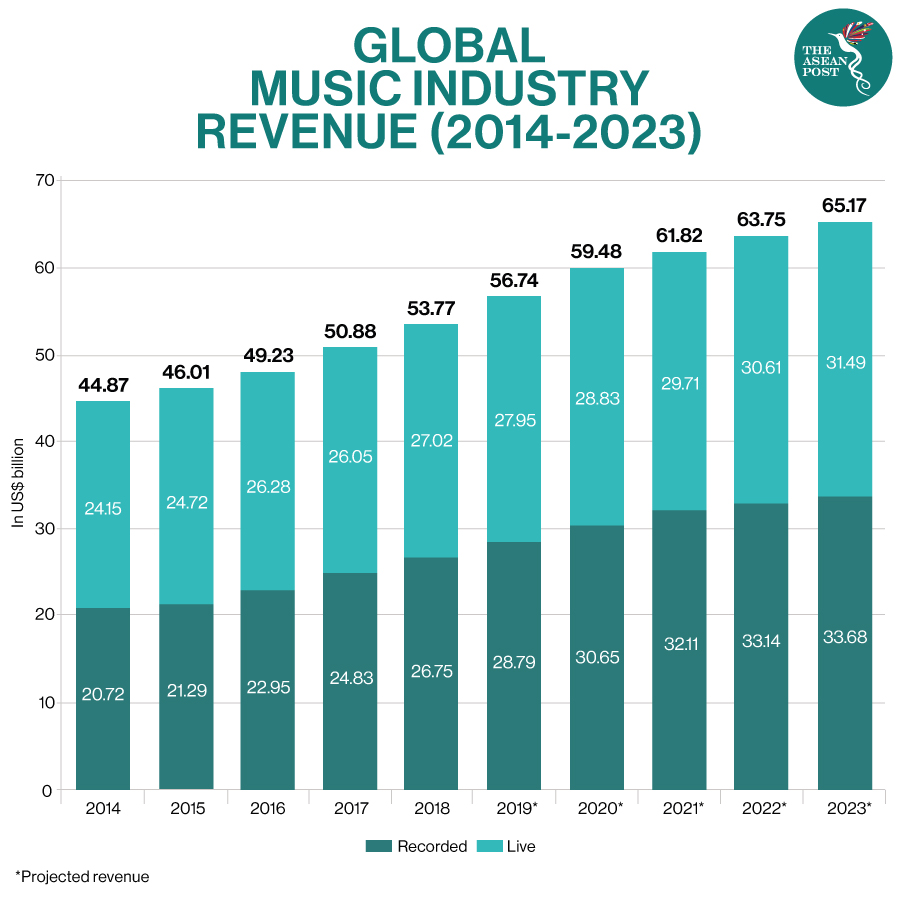It is no secret that the COVID-19 pandemic has negatively affected some of the major industries such as the tourism sector, aviation and even the real estate market. Preventive measures such as citywide lockdowns and travel curbs have been imposed by numerous countries in order to break the chain of infection. Everyone is subjected to the virus restrictions including celebrities, famous public figures and performing artists in the entertainment industry.
Many shows and concerts have either been postponed or cancelled entirely over virus fears. For independent productions and event or street performers, the coronavirus crisis has left many of them without jobs and with no income.
Myichael Jonathan Netto a full-time entertainer at Malaysian-based event company Stanley Event Management said that even in January or February, before the country’s partial lockdown was enacted – those in the industry could already feel the impact of the pandemic as there were not many shows being organised.
“For me, as an entertainer, since there are no parties happening – I do not have business, my suppliers do not have business, the boys who are working under me do not have business, the people who my suppliers hire, for example like the vendors – they don’t have business, like the popcorn vendors, candy floss, the inflatables and all these vendors do not have business,” said Netto to Malaysian media.
“Things are going to be very different after this. Last time we used to have games where people will be hugging each other and have dancing activities. And we have games that involve team building events where they have to be very close,” explained the entertainer. “So, now we have to think of ways to do events by implementing social distancing in our shows.”
Music Industry
According to the World Economic Forum (WEF), the music industry has been hit hard by the pandemic with live performance revenue the biggest casualty. A six-month shutdown is estimated to cost the industry more than US$10 billion in sponsorships, with longer delays being even more devastating.
The global music industry is worth over US$50 billion, with two major income streams, which are live music streams and recorded music, stated the WEF.

Live music makes up over 50 percent of total revenues and is mainly derived from ticket sales. Whereas recorded music combines revenue from streaming, digital downloads, physical sales and licensing of music for movies, games, TV and advertising.
The pandemic has caused physical sales – which represent a quarter of recorded music revenues – to decrease by about one-third perhaps due to the closure of retail stores. Nevertheless, Tencent Music Entertainment (TME) in China reported changes to listening behaviour during the crisis.
“In the first quarter of 2020, online music subscription revenues increased by 70 percent year-over-year. The number of online music-paying users reached 42.7 million, a year-over-year increase of 50.4 percent,” said Tsai Chun Pan, Group Vice President of TME’s Content Cooperation Department.
Film Industry
Most cinemas and movie theatres have shuttered amid the pandemic. Film festivals and releases have been postponed or delayed indefinitely. From Hollywood to Bollywood, millions of production crew staff – off-camera and in front of the camera – are at risk of unemployment.
Research firm Ampere Analysis said that the global film and television industry is predicted to lose an estimated US$160 billion in terms of growth over the next five years.
It was reported that the Chinese film industry lost US$2 billion by March this year as cities went under lockdown. Whereas the United States (US) box office is facing its worst financial year in more than 20 years.
Over in Malaysia, the country’s lockdown, known locally as the Movement Control Order (MCO) implemented in March had caught “the industry off-guard,” said Malaysian Film Producers Association honorary secretary Zahrin Aris.
Afdlin Shauki, a prominent Malaysian director, actor and producer said that despite the glitz and glamour, those in the entertainment industry are “no different from labourers.”
Neighbouring Thailand which has eased its lockdown measures requires production companies to comply with its social distancing rules. Media in the ASEAN member state have reported that new regulations require filmmakers to work in well-ventilated spaces, with no more than 50 crew members present at a time. Crews behind the camera must wear face masks. While special effects and camera angles can be used to help depict scenes that would usually require intimacy or contact.
As the film industry struggles with the pandemic, streaming service Netflix has reported soaring profits as subscriptions surged by almost 16 million amid the crisis.
“After record subscriber additions, Netflix is and will continue to be the media company least impacted by COVID-19,” said eMarketer forecasting analyst, Eric Haggstrom.
“Their business is a near perfect fit to a population that is suddenly housebound.”
Related Articles:
